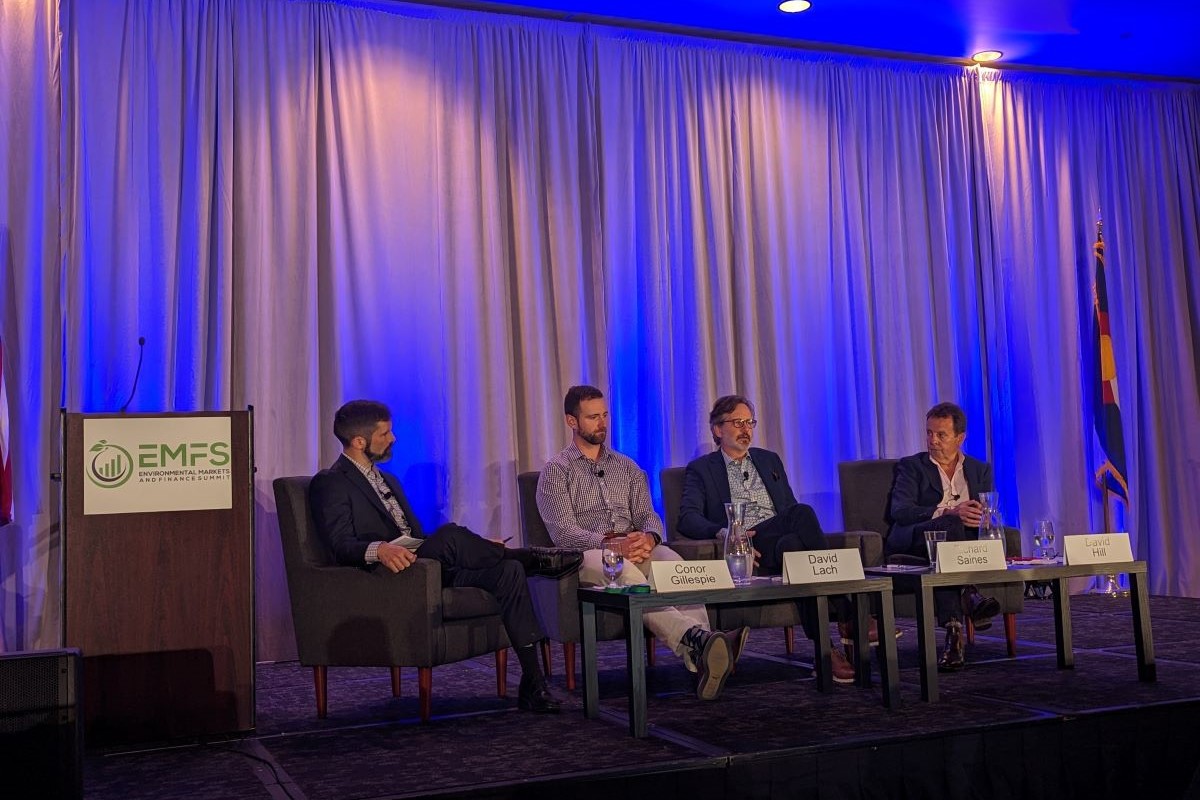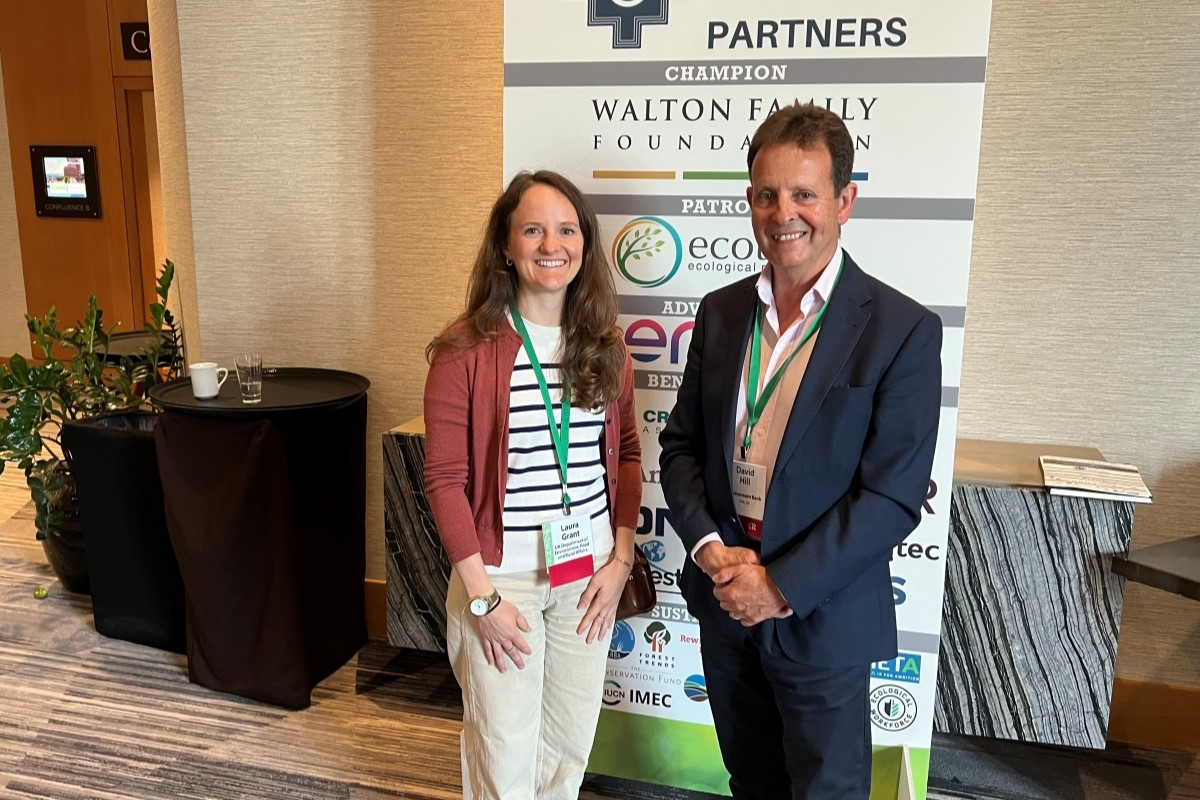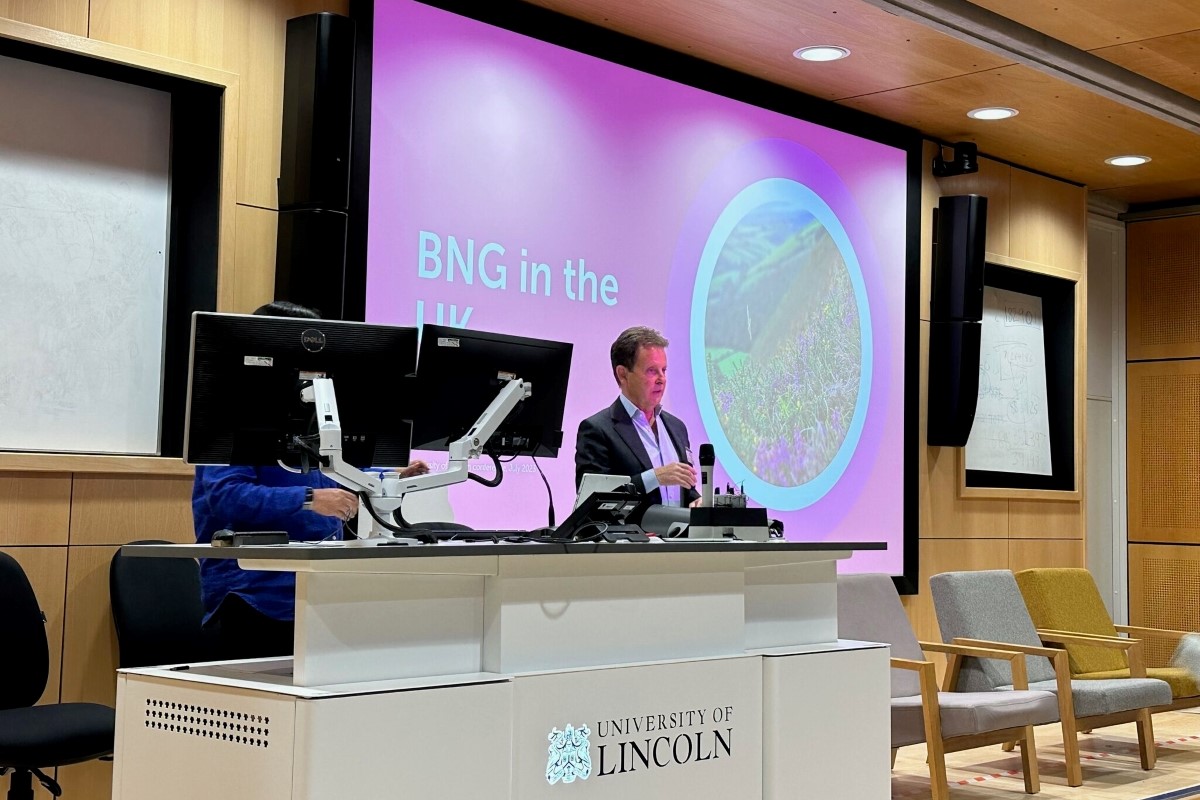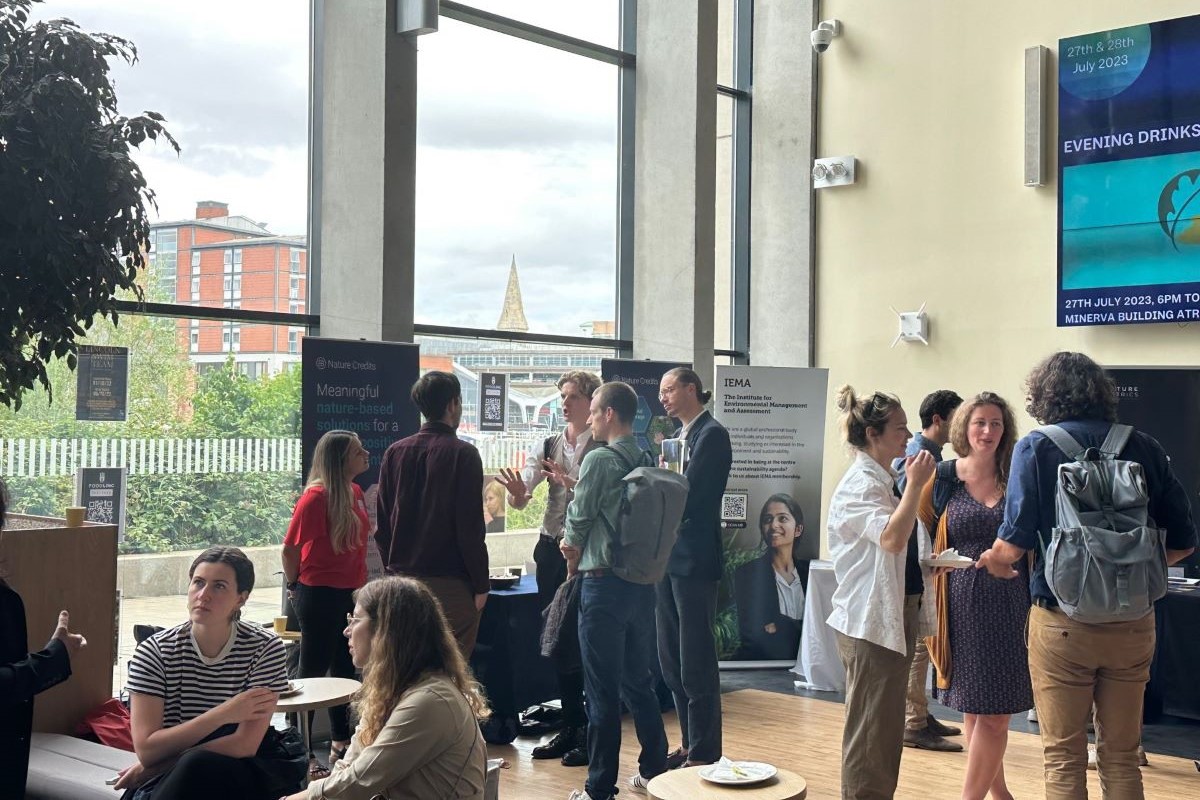Urgent calls for high-integrity nature restoration projects: Insights from two conferences
Environment Bank’s recent visits to industry conferences on environmental markets reinforced for us the acute urgency for high-integrity, large-scale nature restoration projects in the fight against critical biodiversity loss.
Environmental Markets & Finance Summit

Our Chairman, Professor David Hill CBE, was invited to speak at the Environmental Markets & Finance Summit in Denver, Colorado, where he contributed to the panel discussion: Connecting Environmental Markets alongside David Lach (Director at Natural Climate Solutions), Richard Saines (Managing Director at Pollination Group), and moderator Conor Gillespie (CEO at Ecotone).
The conference featured a variety of thought-provoking presentations and panels exploring carbon, water, and biodiversity across a range of industry sectors and voluntary, regulatory, and programme-driven approaches.
For David, the conference highlighted the differences in application of biodiversity restoration regulation in the UK and the USA. Despite a comparable existential threat of critical biodiversity loss facing both countries, the USA’s mitigation bank system features a far more complex regulatory process which may be hindering the establishment of habitat banks and impacting development.
Wetland or stream mitigation banks are regulated by the US Army Corps of Engineers (USACE) and the US Environmental Protection Agency (USEPA). Regulatory agencies include the Mitigation Banking Review Team (MBRT) and the Conservation Banking Review Team (CBRT). If you want to establish a mitigation bank, you need planning authorisation from the USACE and the Inter-agency Review Team. A range of technical advisory groups provide advice to the regulatory bodies to enable them to make an approval or not, and approval timescales can often run into years.
The Ecological Restoration Business Association (ERBA) has said that "in places without a mitigation bank alternative, public infrastructure projects languish for years in regulatory review for lack of environmental offsets.”

David’s key takeaways included the serious need for jargon busting surrounding the financial aspects of environmental markets which may be gatekeeping progress, as well as universal calls for urgent action on biodiversity restoration.
Notably, he raised the issue that substantial corporate funding is sat waiting in anticipation of large-scale projects in which to invest. The lack of large-scale projects, and the delays caused by complex regulatory systems, may be preventing essential progress from happening immediately in the USA.
David was joined at the conference by Defra’s Laura Grant (Policy Lead on BNG, Market & Statutory Credits) who featured as a panellist discussing global policy. Environment Bank has been so fortunate to have had several valuable discussions with Laura and her team over the past year, working closely with Defra to shape BNG policy in the UK.

Nature-based Solutions Using Carbon & Biodiversity Credit Funding
We were also proud to be the headline sponsor for the University of Lincoln’s First Annual Conference on Nature-based Solutions Using Carbon & Biodiversity Credit Funding where David gave a compelling keynote address on environmental markets and their role in financing nature recovery globally.
Also in attendance, our Principal Ecologist and Innovation Lead, Rob Wreglesworth, said that the conference left him thinking that we need a fundamental shift in our mindset around nature as a charity case. Considering how many businesses rely upon natural capital and ecosystem services to operate, they are going to have to invest more seriously in rebuilding natural capital and restoring the ecosystems on which we all depend.
Rob’s favourite quote from the conference was: "We aren't putting a value on nature; we are putting a value on the restorers and custodians of nature." This succinctly captures the shift in thinking we need to reframe environmental markets from ‘commodifying nature’ to ‘creating effective mechanisms for nature recovery through private investment.’

David also convened a panel discussion on biodiversity net gain (BNG) in the UK alongside Sarah Mukherjee (CEO at IEMA), Dr Grace O’Donovan (of Broadview Ecological Consultants), and Dr Joseph Bull (Associate Professor in Climate Change Biology at Oxford University).
The panellists explored how the implementation of Defra’s Biodiversity Metric might evolve to achieve the best gains for nature. As the transition period for BNG approaches its end, discussions regarding BNG awareness and implementation focused on how this policy can be instrumental in its support of broader biodiversity conservation objectives and targets.
Key takeaways from the discussion included the need for BNG to be executed immediately and with expertise, the need for a standardised management and monitoring strategy for BNG, the need for substantial resources and funding to ensure effective delivery, and the myriad opportunities this policy creates (if standardised parameters are established).

Ensuring the effective delivery of BNG
Through our Biodiversity Units, Environment Bank are ensuring effective delivery of BNG across England. With £240M of investment from the Gresham House British Sustainable Infrastructure Fund, we are providing fully funded projects (for 30+ years) that offer the essential security that landowners, planners, developers, policymakers, and local communities require.
We have a highly dedicated team of trained ecologists who tailor our Habitat Banks to support connected ecological networks and local nature recovery goals – ensuring that gains for nature are achievable from the outset. Using robust methodologies, we create high-integrity Habitat Banks delivered to the highest ecological standards.
Beyond BNG
Since playing a fundamental role in shaping and establishing BNG policy in the UK (the reason David founded Environment Bank in 2006) and developing the solution for ensuring its effective delivery, Environment Bank are moving into providing solutions for corporate natural capital accounting and reporting. We are developing a biodiversity credit product that will help corporates to become truly nature positive.
Our team are excited about the broad opportunities and innovations materialising within the emerging environmental markets space, and we are confident in our ability to deliver the meaningful solutions and quality biodiversity restoration projects that nature so urgently needs.
